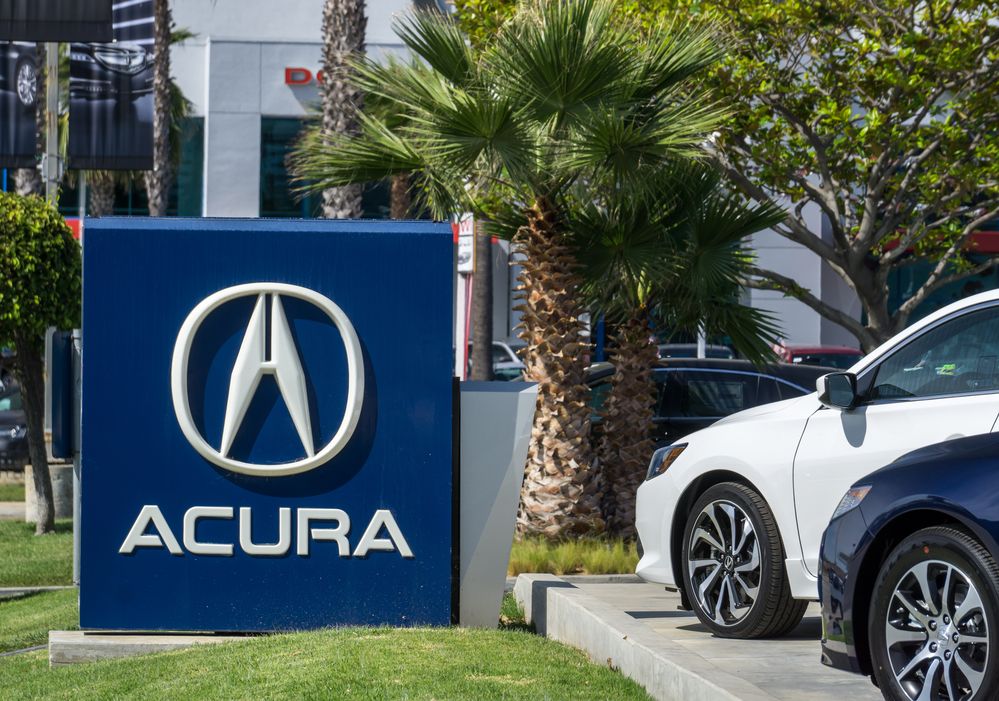 A proposed class action lawsuit filed by a group of plaintiffs on Wednesday alleges that the Acura HandsFreeLink Bluetooth system is hazardous and drains the electrical system of its vehicles.
A proposed class action lawsuit filed by a group of plaintiffs on Wednesday alleges that the Acura HandsFreeLink Bluetooth system is hazardous and drains the electrical system of its vehicles.
The plaintiffs filed this class action lawsuit in California federal court in the hopes of representing a nationwide Class, or alternatively from California, Arizona, Delaware, Missouri, New Hampshire and Virginia in their allegations against Honda, the manufacturer of Acura vehicles.
The lawsuit alleges that Honda was the first to offer Bluetooth technology in their vehicles, allowing drivers to pair their phones with the car in order to have “hands-free” calling capabilities.
Honda’s 2004 Acura vehicles were the first model year to have this device, known as the HandsFreeLink.
According to the complaint, Honda neglected to develop a feature on the Bluetooth device that causes it to switch off when it is not being used. The device is constantly switched to the “on” position when it is not in use and even after the car’s ignition switch has been turned off.
“Once stuck ‘on,’ the HandsFreeLink unit creates a constant and substantial parasitic electric drain on the electric system, leading to drained and dead batteries, recurring battery replacement, and premature failure of other essential electric components such as alternators,” the class action lawsuit says.
As a result of the battery drain, the vehicles will not start following a short period of not being used and the electrical systems of the vehicle are prone to failing, even when the car is being driven, the claim states.
“Despite knowing about the issue with its HandsFreeLink since at least 2005, Honda has merely issued internal Service Bulletins to its dealers over the years, notifying only the dealers about the problem, but offering no meaningful solution, warranty coverage, or recall,” the plaintiffs state.
The proposed nationwide Class brings forth seven counts against Honda including fraud by concealment, breaches of express and implied warranties, violations of the Magnuson-Moss Warranty Act, unjust enrichment, and violation of California law including violations of the California Consumer Legal Remedies Act as well as violations of California’s Unfair Business Practices Act.
Additional claims were also brought for six additional alternate Classes based on state law claims, echoing those brought under the California Class.
In addition to seeking class certification for a nationwide Class and for state subclasses, the plaintiffs are seeking injunctive relief in the form of a recall or free replacement program with a HandsFreeLink system that does not drain the vehicle’s electrical system.
The plaintiffs are also seeking restitution in damages which include enhanced damages, punitive damages, costs, and disgorgement in an amount to be determined, attorneys’ fees and costs, pre- and post-judgment interest and any further relief as deemed appropriate by the court.
A similar proposed class action was also filed against Honda over the Acura Bluetooth system in June of this year.
The plaintiffs are represented by Shana E. Scarlett, and Steve W. Berman of Hagens Berman Sobol Shapiro LLP; Christopher A. Seeger, Scott Alan George, and Daniel R. Leathers of Seeger Weiss LLP; James E. Cecchi of Carella, Byrne, Cecchi, Holstein, Brody & Angello, P.C.; and Roland K. Tellis and Mark P. Pifko of Baron & Budd, P.C.
The Honda Acura Bluetooth Defect Class Action Lawsuit is Ron Alul, et al. v. American Honda Motor Company Inc., Case No. 3:16-cv-04384, in the U.S. District Court for the Northern District of California.
ATTORNEY ADVERTISING
Top Class Actions is a Proud Member of the American Bar Association
LEGAL INFORMATION IS NOT LEGAL ADVICE
Top Class Actions Legal Statement
©2008 – 2026 Top Class Actions® LLC
Various Trademarks held by their respective owners
This website is not intended for viewing or usage by European Union citizens.















169 thoughts onHonda Class Action Says Acura’s Bluetooth System is Defective
the recall should be everyone not just those states, also involves more models, 210 Accord Bluetooth went out would drain battery over night, replaced, now has failed again. Bad design period.
For God’s sake just remove the bluetooth fuse.